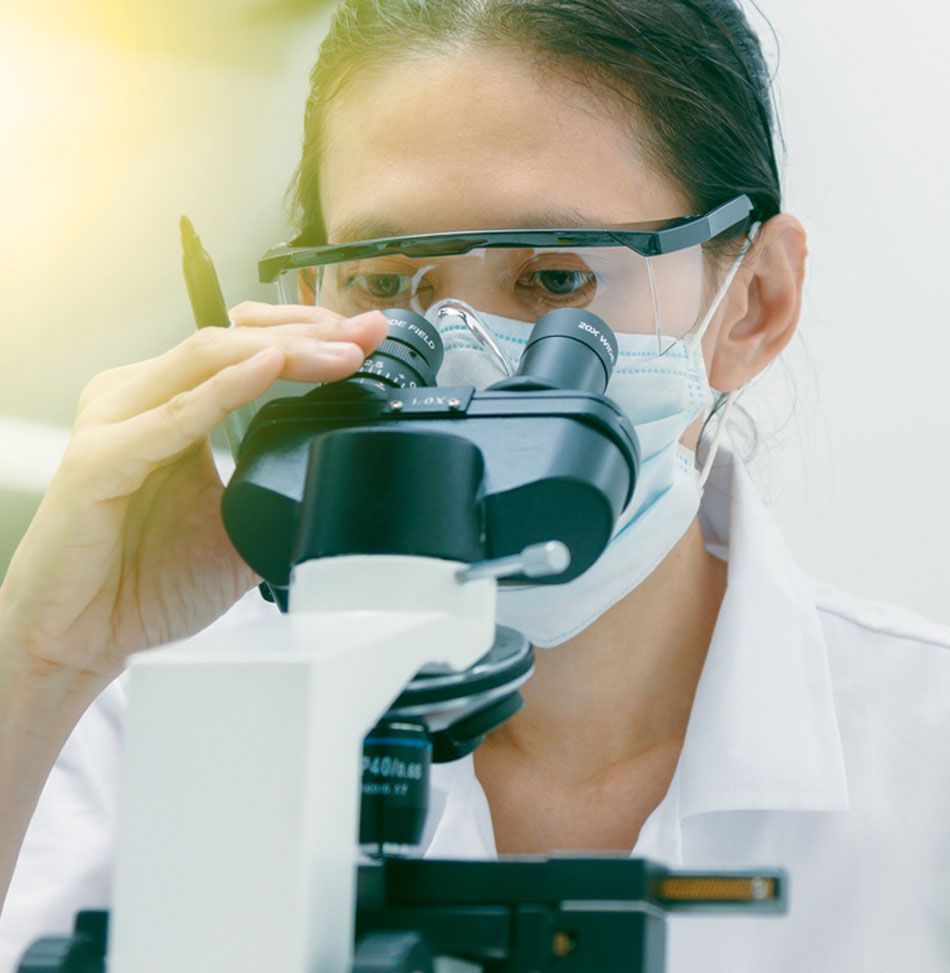If you are diagnosed with breast cancer, your doctor may order additional lab test to assist with prognosis. The 2 most common are the hormone receptor test and the HER2/neu test. Results for these 2 tests can provide insight into which cancer treatment options may be most effective for you. We ask Dr Norraha Abd Rahman, a Resident Consultant Pathologist of Pantai Premier Pathology, to explain the 2 tests.
Diagnosed with Breast Cancer? So What’s Next?
If you are diagnosed with breast cancer, your doctor may order additional lab test to assist with prognosis. The 2 most common are the hormone receptor test and the HER2/neu test. Results for these 2 tests can provide insight into which cancer treatment options may be most effective for you. We ask Dr Norraha Abd Rahman, a Resident Consultant Pathologist of Pantai Premier Pathology, to explain the 2 tests.
- Hormone receptor test:
What is being tested?
The test is performed to determine whether the cancer cells have hormone specific receptors or not. Cell receptors, including hormone receptors, are special proteins found within and on the surface of certain cells throughout the body. Receptors are specialized proteins present on the surface or within cells that recognize and bind to other substrates. If the right substance comes along that fits into the receptor — like a key fitting into a lock — the switch is turned on and a particular activity in the cell begins. In some breast cancer, these receptors are where the hormones bind to the cells. Once they bind, the hormones can affect the behaviour or growth of the cells.
For purpose of diagnosis and prognosis, this test is performed on breast cancer tissue section which would have been taken earlier to make the diagnosis of breast cancer. It can be from breast tissue biopsy or from the lump which has been removed. The most common method currently used to test for Estrogen Receptors (ER) and Progesterone Receptors (PR) in a breast cancer tissue is called Immunohistochemistry or IHC. It is performed on a tissue sections using special reagents and equipment.
What do the results mean?
In general, if a person’s breast cancer is both ER-positive and PR-positive, the individual will have a better prognosis, and their cancer is more likely to respond to endocrine therapy such as tamoxifen. The higher percentage of receptors present and the more intense the reaction denotes by intensity of the stains, the more likely the response.
If a person’s cancer is either ER-negative but PR-positive, or ER-positive but PR-negative, then she may still benefit from endocrine therapy but may have a diminished response. If the cancer is both ER-negative and PR-negative, then the person is not likely to benefit from endocrine therapy.
- What is HER2 receptor and how does it relate to breast cancer?
HER2 is short for the Human Epidermal Growth Factor Receptor 2. It is a gene that is found in healthy cells and the HER2/neu gene codes for a protein that helps promote cell growth, but in some people with breast cancer the tumour cells have mutated resulting in too many copies in a cell (amplification) and HER2/neu gene then produces too much of the HER2 protein. When this happens, HER2/neu becomes an oncogene, meaning that it can promote uncontrolled, cancerous growth with excess copies of the gene and increase amounts of the protein it produces. Breast cancers in this category are known as HER2 positive breast cancer. Studies have shown that HER2 positive breast cancer occur in about 20% of breast cancers.
The HER2 test performed on breast tissue determines whether a person’s breast cancer is positive for HER2 or not. HER2 testing is usually ordered along with estrogen and progesterone hormone receptor status tests.
There are two main ways to test HER2/neu status:
- Immunohistochemistry (IHC) measures the amount of HER2 protein present.
- Fluorescent in situ hybridization (FISH) looks at the genetic level for the number of copies of the gene present, known as amplification.
Both IHC and FISH are acceptable testing methods.
- What will the HER2/neu results tell me?
Her2 positive breast cancers tend to grow more aggressively and respond differently to treatment than HER2-negative cancer. This type of breast cancer resists endocrine (anti-hormone) therapy and is resistant to standard chemotherapy. HER2/neu-positive breast cancers often associated with poorer prognosis, but this cancer characteristic makes the patient with this type of breast cancer candidate to receive trastuzumab (Herceptin®) therapy, treatment specific for HER2/neu-positive cancers which is also known as targeted therapy.
Dr. Norraha Abd Rahman,
Resident Consultant Pathologist,
Pantai Premier Pathology,
Pantai
Hospital Kuala Lumpur.
*This article adapted from Health & Beauty Mag October 2014 issue.



